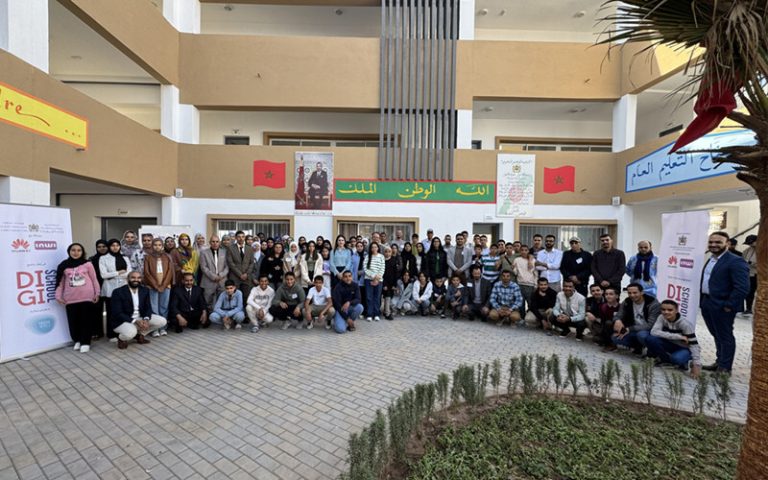Huawei has announced the successful completion of the DigiSchool 2024 project in Morocco, further cementing its commitment to improving digital access and educational transformation in the Kingdom. The project, which aligns with Morocco’s 2022-2026 education reform roadmap, was launched in February 2024 and has been instrumental in shaping a digitally capable generation.
As part of Huawei’s global TECH4ALL digital inclusion initiative, the DigiSchool project is a public-private partnership between the Moroccan Ministry of National Education, Preschool and Sports and Huawei Morocco. It is designed to empower students and teachers with essential digital skills to help them thrive in an increasingly connected world.
Empowering Students and Teachers with Digital Skills
David Li, Managing Director of Huawei Morocco, shared, “The DigiSchool project emphasizes the importance of strengthening digital skills and consolidating the public-private partnership as a real lever for boosting a resilient digital ecosystem.” Li further noted that Huawei’s continuous investment in training and innovation is key to supporting Morocco’s aspirations for quality and inclusive digital education.
The project focused on developing digital skills through training in emerging technologies such as artificial intelligence, virtual reality, app development, and coding. Students and teachers were provided with hands-on experience in robotics and problem-solving exercises designed to improve digital literacy and inspire creativity. Through interactive games and technology-based activities, participants gained valuable skills that are essential for the digital economy.
A Four-Phase Approach to Digital Transformation
The DigiSchool 2024 project was structured into four distinct phases aimed at building a strong foundation for Morocco’s digital education.
- Phase One: Training 265 secondary school teachers across Morocco’s 12 regions in ICT skills.
- Phase Two: Ongoing support for teachers as they integrated their newly acquired skills into the classroom, benefiting 2,650 students.
- Phase Three: A series of 12 regional hackathons, involving 714 students who tackled ICT challenges and developed innovative solutions.
- Phase Four: A technology bootcamp in Fez, Marrakech, and Agadir, where 180 students and 60 teachers from across Morocco honed their ICT skills and presented their hackathon projects.
Celebrating Success and Digital Inclusion
The DigiSchool 2024 program culminated in a high-profile evaluation tour in Agadir, where students presented their innovative solutions to a delegation of education leaders. The tour included Mohamed Saad Berrada, Minister of National Education, Preschool and Sports, and senior officials from regional education bodies and Huawei.
The initiative underscores the Moroccan government’s commitment to advancing education digitalization and creating an inclusive, equitable educational ecosystem. Huawei remains dedicated to continuing its support for Morocco’s digital education journey, making the country a regional leader in harnessing technology for educational progress.
Global Impact of Huawei’s TECH4ALL Initiative
Huawei’s DigiSchool initiative extends beyond Morocco, with similar projects in Kenya, Senegal, South Africa, Chile, and China. These efforts aim to connect remote schools to the internet and provide students and teachers with the necessary digital tools to enhance learning outcomes. Through these global projects, Huawei is shaping the future of education and fostering greater digital inclusion around the world.
Conclusion
The success of the DigiSchool 2024 project highlights the power of collaboration between the public and private sectors in advancing education reform. Huawei’s continued investment in Morocco’s digital education transformation is a testament to the company’s commitment to creating lasting social impact and empowering future generations.
